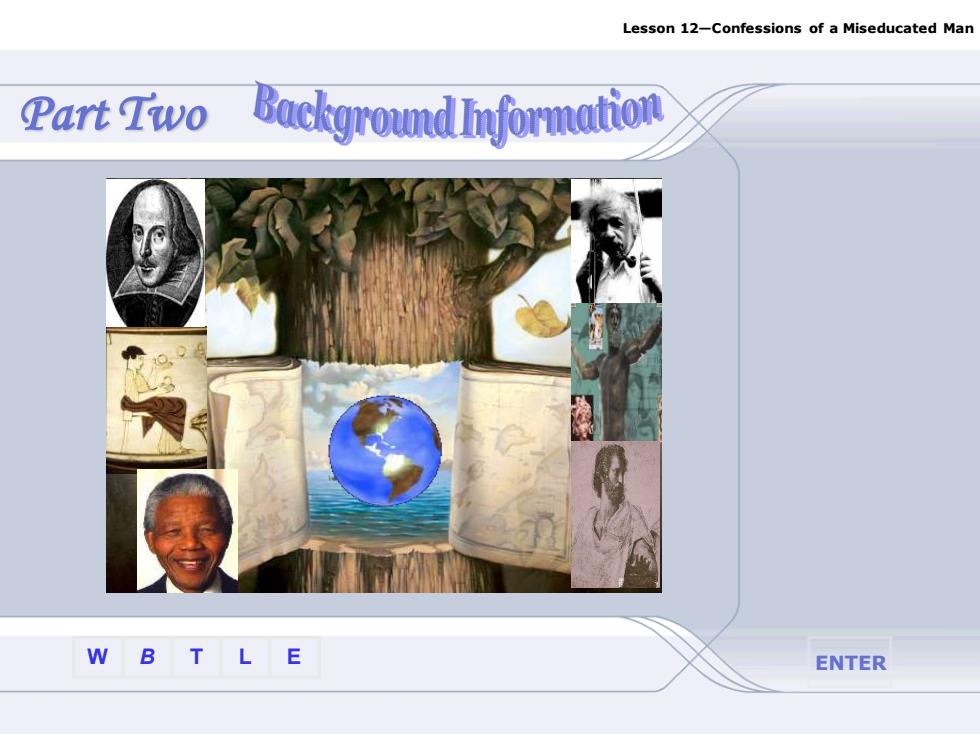
Lesson 12-Confessions of a Miseducated Man Part Two Backgroud Iformation WB T L E ENTER
Lesson 12—Confessions of a Miseducated Man W B T L E Part Two W B T L E ENTER
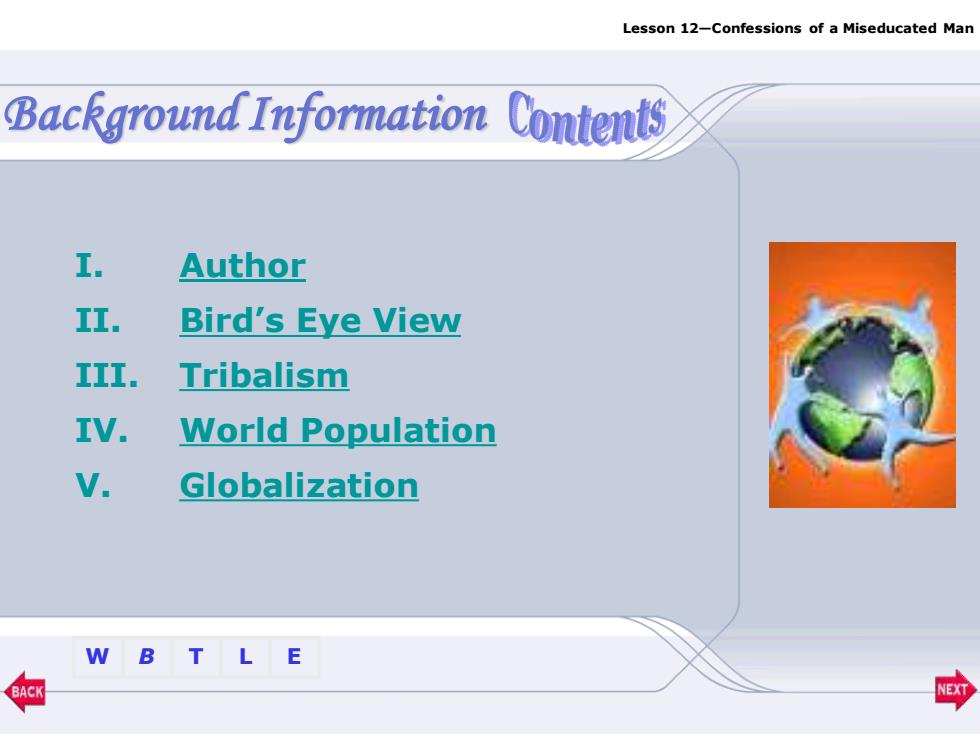
Lesson 12-Confessions of a Miseducated Man Background Information Contents I. Author II. Bird's Eye View IxI. Tribalism IV. World Population V. Globalization WB T L E BACK NE动
Lesson 12—Confessions of a Miseducated Man W B T L E I. Author II. Bird’s Eye View III. Tribalism IV. World Population V. Globalization Background Information
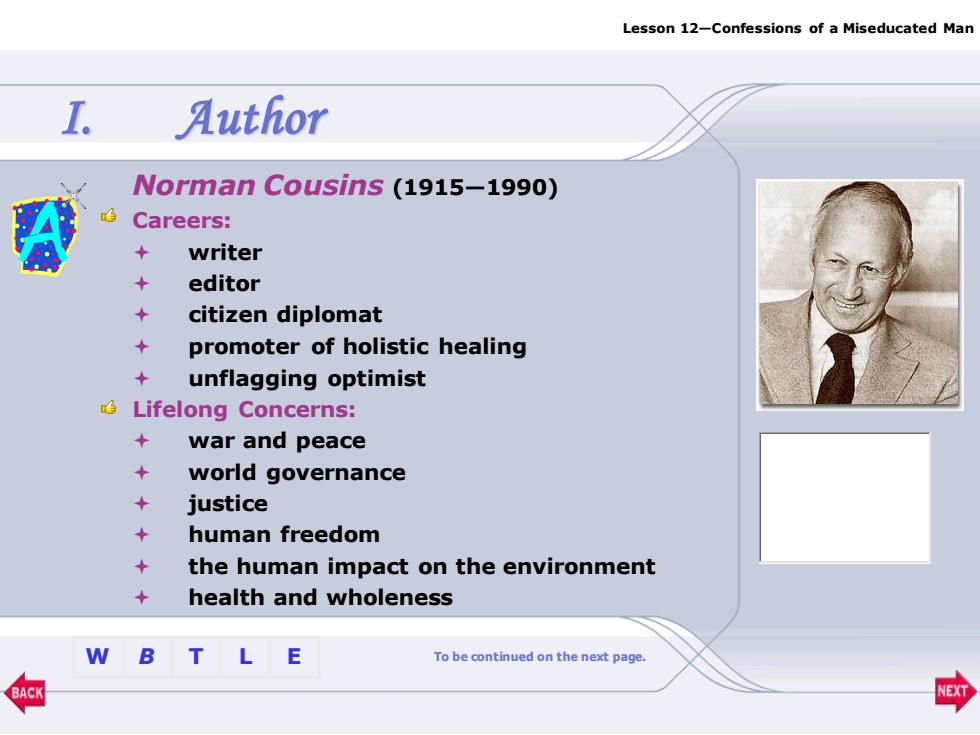
Lesson 12-Confessions of a Miseducated Man I.Author Norman Cousins (1915-1990) Careers: writer editor citizen diplomat promoter of holistic healing unflagging optimist G Lifelong Concerns: war and peace world governance justice human freedom the human impact on the environment health and wholeness To be continued on the next page
Lesson 12—Confessions of a Miseducated Man W B T L E Norman Cousins (1915—1990) Careers: writer editor citizen diplomat promoter of holistic healing unflagging optimist Lifelong Concerns: war and peace world governance justice human freedom the human impact on the environment health and wholeness I. Author To be continued on the next page
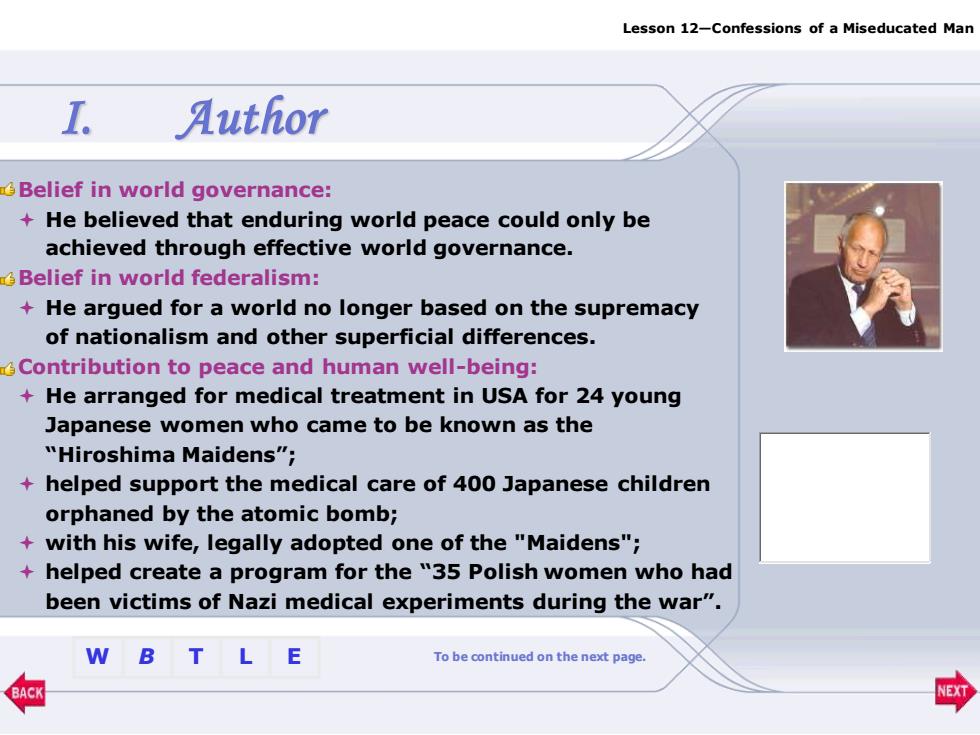
Lesson 12-Confessions of a Miseducated Man I.Author Belief in world governance: He believed that enduring world peace could only be achieved through effective world governance. Belief in world federalism: He argued for a world no longer based on the supremacy of nationalism and other superficial differences. Contribution to peace and human well-being: He arranged for medical treatment in USA for 24 young Japanese women who came to be known as the "Hiroshima Maidens"; helped support the medical care of 400 Japanese children orphaned by the atomic bomb; with his wife,legally adopted one of the "Maidens"; helped create a program for the "35 Polish women who had been victims of Nazi medical experiments during the war". WB T L E To be continued on the next page. BACK
Lesson 12—Confessions of a Miseducated Man W B T L E I. Author To be continued on the next page. Belief in world governance: He believed that enduring world peace could only be achieved through effective world governance. Belief in world federalism: He argued for a world no longer based on the supremacy of nationalism and other superficial differences. Contribution to peace and human well-being: He arranged for medical treatment in USA for 24 young Japanese women who came to be known as the “Hiroshima Maidens”; helped support the medical care of 400 Japanese children orphaned by the atomic bomb; with his wife, legally adopted one of the "Maidens"; helped create a program for the “35 Polish women who had been victims of Nazi medical experiments during the war
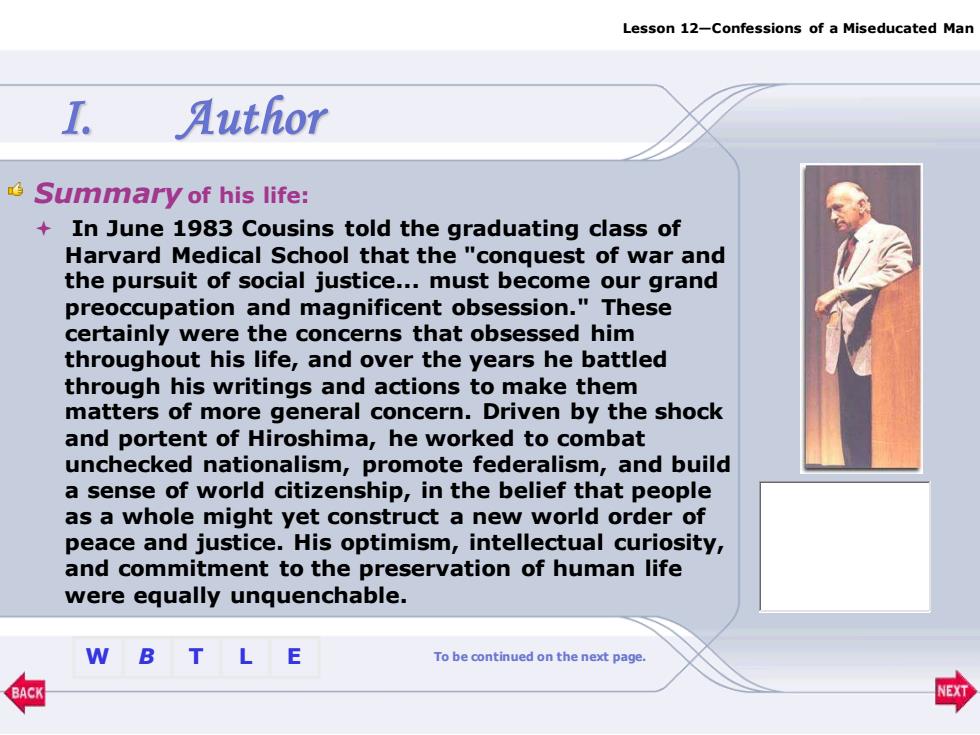
Lesson 12-Confessions of a Miseducated Man I. Author Summary of his life: In June 1983 Cousins told the graduating class of Harvard Medical School that the "conquest of war and the pursuit of social justice.must become our grand preoccupation and magnificent obsession."These certainly were the concerns that obsessed him throughout his life,and over the years he battled through his writings and actions to make them matters of more general concern.Driven by the shock and portent of Hiroshima,he worked to combat unchecked nationalism,promote federalism,and build a sense of world citizenship,in the belief that people as a whole might yet construct a new world order of peace and justice.His optimism,intellectual curiosity, and commitment to the preservation of human life were equally unquenchable. WBT L E To be continued on the next page. BACK
Lesson 12—Confessions of a Miseducated Man W B T L E I. Author To be continued on the next page. Summary of his life: In June 1983 Cousins told the graduating class of Harvard Medical School that the "conquest of war and the pursuit of social justice. must become our grand preoccupation and magnificent obsession." These certainly were the concerns that obsessed him throughout his life, and over the years he battled through his writings and actions to make them matters of more general concern. Driven by the shock and portent of Hiroshima, he worked to combat unchecked nationalism, promote federalism, and build a sense of world citizenship, in the belief that people as a whole might yet construct a new world order of peace and justice. His optimism, intellectual curiosity, and commitment to the preservation of human life were equally unquenchable